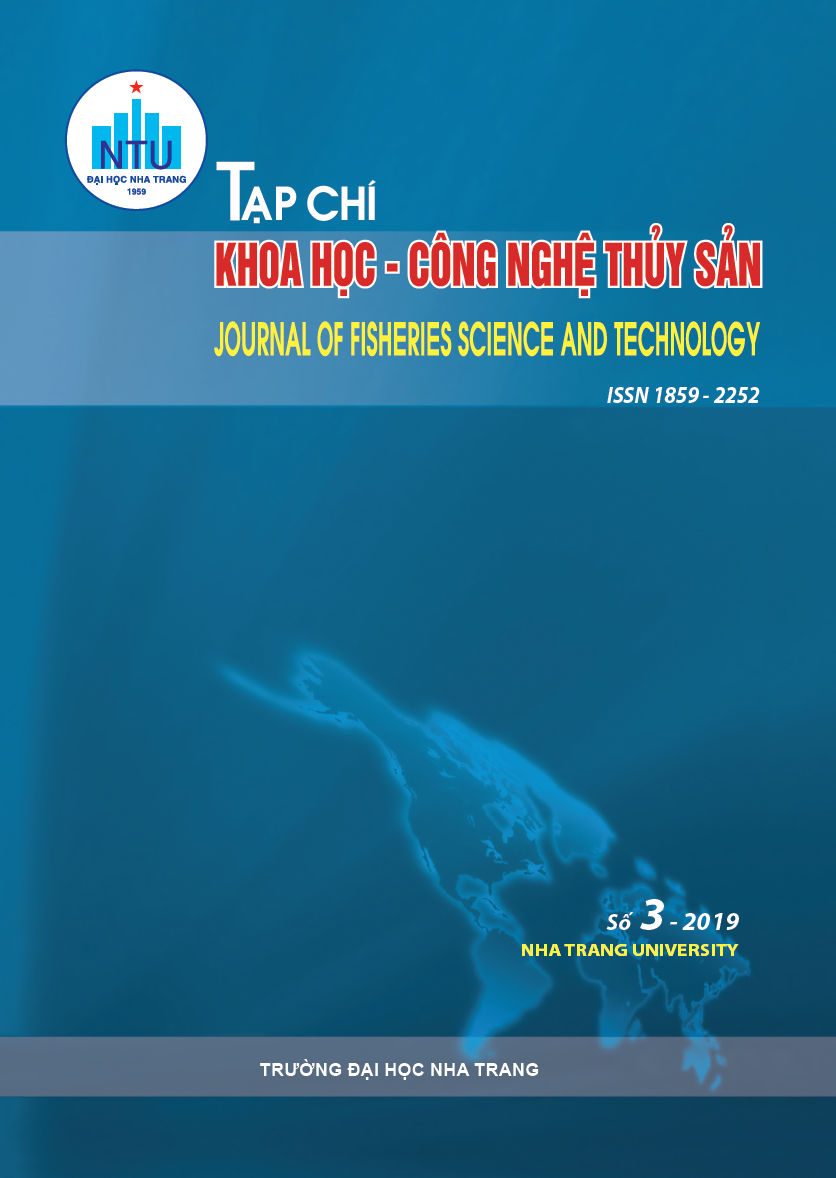##plugins.themes.huaf_theme.article.main##
Abstract
Vibrio parahaemolyticus pVPA3-1 is the causative agent of Acute Hepatopancreatic Necrosis Disease AHPND in both Litopenaeus vannamei and Penaeus monodon, causing a high mortality rate of 90 - 100% within about one week of infection. This study aims to in vitro screening (Agar Disk Diffusion, Minimum Inhibitory and Minimum Bactericidal Concentration MIC/MBC) some indigenous plants with high antimicrobial activity against V. parahaemolyticus pVPA3-1. Also, the study initially conducted tests on shrimp (LD50, the safety) to develop an in vivo assessment method. Minimum Inhibition Concentration MIC and Minimum Bactericidal Concentration MBC of 6 herbal extracts on V. parahaemolyticus pVPA3-1 are ranging from 6.25 to 12.5 mg mL-1, which is a prerequisite for further in vivo assessments. In addition, stable results from the Lethal Dose LD50 and the safety of herbal foods might contribute significantly to in vivo evaluation in shrimp.
Key words: Acute Hepatopancreatic Necrosis Disease, Early mortality syndrome, herbal extract, V. parahaemolyticus pVPA3-1

